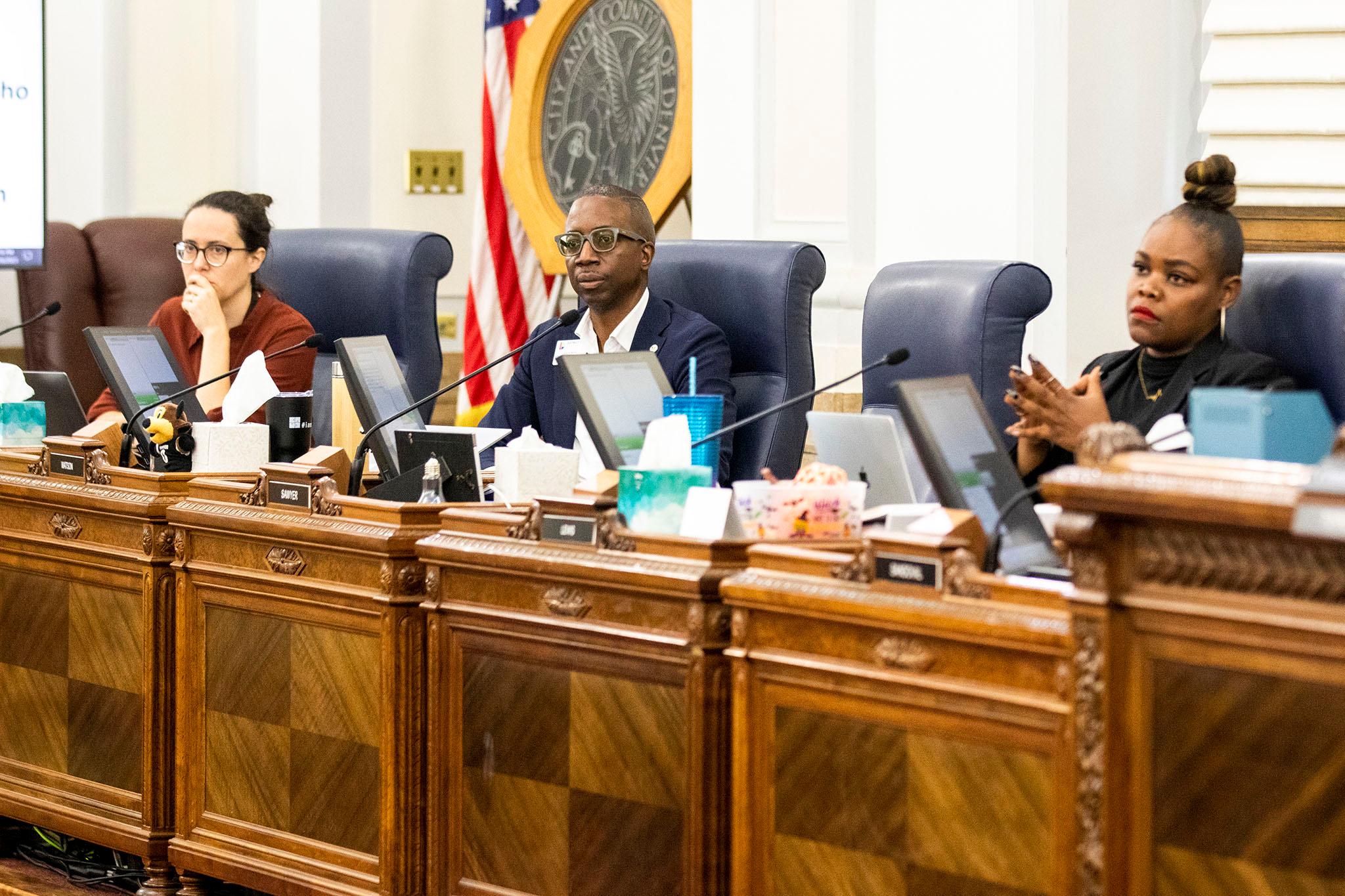Denver will get $29.1 million for rental assistance in 2024. That's up from Mayor Mike Johnston's initial $12.6 million commitment after City Council pushed through additional funds on Monday.
The extra funds come as Denver has already seen more evictions by early November of this year than in the entirety of 2022. In October, more than 1,600 households went to eviction court, which was a five-year record high. Both city-affiliated rental assistance programs stopped taking applications earlier this year because they ran out of funds.
Johnston's original budget upped the city's commitment to rental assistance compared to recent years. His initial $12.6 million was still a decrease in total funding compared to the start of the pandemic, after federal assistance funds dried up. One study shows Denver would need $55 million annually to meet rental assistance needs.
Since then, advocates have been pushing Denver leadership to add more money to prevent additional families from falling into homelessness. During Monday's City Council meeting, councilmembers used their limited budgeting power to do just that.
"Emergency rental assistance is necessary to stop the flood of Denverites from falling into homelessness in the first place," said Councilmember Sarah Parady, who took the lead on rental assistance along with Councilmembers Shontel Lewis, Serena Gonzales-Gutierrez, Stacie Gilmore and Paul Kashmann.
In a rare move, Monday's amendment was co-sponsored by all 13 Councilmembers, passing unanimously.
The amendment, in addition to a handful of others, shows a Council more active in the budget process than in recent years. In 2021, Council passed just one amendment for crosswalks, investing $1 million, and in 2020, Council did not pass any budget amendments.
In pushing for increased rental assistance, advocates have emphasized how Johnston's homelessness efforts will fall short if landlords evict tenants at higher rates.
"When we talk about addressing homelessness, we also need to talk about how to prevent it," Gonzales-Gutierrez said in a statement Monday. "I am pleased that we have secured all but a million dollars of the additional rental assistance funds we have been advocating for. This is money that Denver residents need so desperately, and we are extremely proud that our amendment is backed by all 13 members of council and Mayor Johnson's administration."
Unlike an initial version of the rental assistance amendment, the final version does not take any money from Denver's emergency reserves.
Last week, City Council passed an earlier version of that plan for nearly $15 million. But the funding source was controversial, with all the money coming from the city's emergency reserves. Budgeting officials and opponents of the amendment worried that taking so much money from the reserves could bring financial risk for the city in the event of a recession or continuing migrant crisis, and could harm the city's interest rates.
Some proponents of the early amendment hoped it would push the Mayor's office to find other funding sources -- something that happened over the past week.
The final version of the amendment that passed Monday avoided the reserves. It instead took money from the general fund meant for city services and supplies and the Keep Denver Beautiful graffiti and litter project, and made use of leftover property tax relief money.
Parady said none of the money would affect city personnel.
"After working in close partnership with City Council, we are excited to deliver funding for rental assistance that will work both for the city budget and for Denverites," said Mayor Mike Johnston in a statement Monday. "We're committed to not just supporting those who are currently unhoused, but preventing more Denverites from entering homelessness through rental assistance."
Parady said the final amendment fell about $1.5 million short of the earlier plan because Council and the Mayor's office "ran out of hours" before they could find enough sources in the budget to avoid using reserves.
While added rental assistance is something the city could make happen with limited funding in the short-term, Parady called on the state and federal government to do more to address homelessness and the housing crisis.
"Denver cannot solve our housing crisis alone," she said. "The City of Denver needs our state legislators to step up next session."














